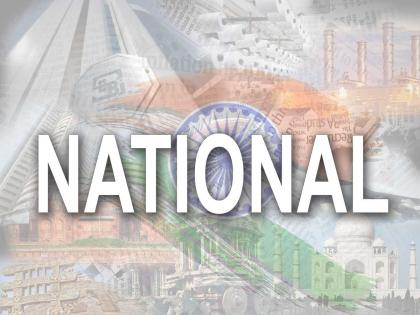Delhi govt teams up with J-PAL for better delivery of schemes
By IANS | Published: November 15, 2019 11:52 PM2019-11-15T23:52:06+5:302019-11-16T00:00:17+5:30
The Dialogue and Development Commission (DDCD) of Delhi government on Friday signed an MoU with Nobel laureates Abhijit Banerjee and Esther Duflo's J-PAL (Jameel Poverty Action Lab) South Asia to conduct real-time monitoring of the public services offered by the government.

Delhi govt teams up with J-PAL for better delivery of schemes
"The project is aimed at improving the quality of services, identifying service delivery issues, and motivating frontline staff to perform their duties better," the Delhi government said.
The project will be kicked off as a pilot to study the beneficiary experience in ration shops under the Public Distribution System (PDS) as well as in Mohalla Clinics, Deputy Cheif Minister Manish Sisodia said.
"Regular programme monitoring is critical for improving public service delivery and beneficiary experience, especially for flagship schemes such as the Ration Shops and Mohalla Clinics.
"And what better way to monitor than directly getting the citizens' voices as to how the services are being delivered. It's also a matter of pride that we are collaborating with a think tank led by Nobel laureates to pilot such a model across government schemes for the first time in India," Sisodia said.
DDCD Vice-Chairman Jasmine Shah, Delhi Chief Secretary Vijay Dev and Executive Director, J-PAL South Asia, Shobhini Mukherjee were present on the occasion.
Delhi government said that an outbound call centre will be established to gather real-time monitoring data on the quality of programme implementation.
"The data will be collected directly from thousands of beneficiaries daily. This data will be used to generate reports for the government. The reports will contain performance reports, disaggregated at a block level, and provide clear visibility of what is happening on the ground," the Delhi government said.
Beneficiaries will be selected randomly across Delhi and will be asked a set of questions to understand the standard of services.
"The phone survey may cover questions related to quantity and quality of grains received, whether a household actually received their entitlement, the waiting time in a Mohalla Clinic, the behaviour of the staff (shop owners or doctors), availability of medicines, etc. J-PAL will analyse the feedback and generate regular report cards, which will then be shared with the departments for further action," the Delhi government said.
( With inputs from IANS )
Open in app